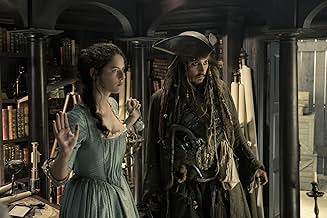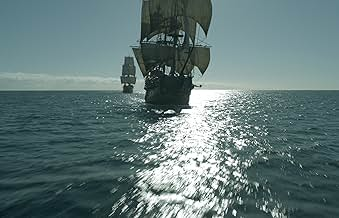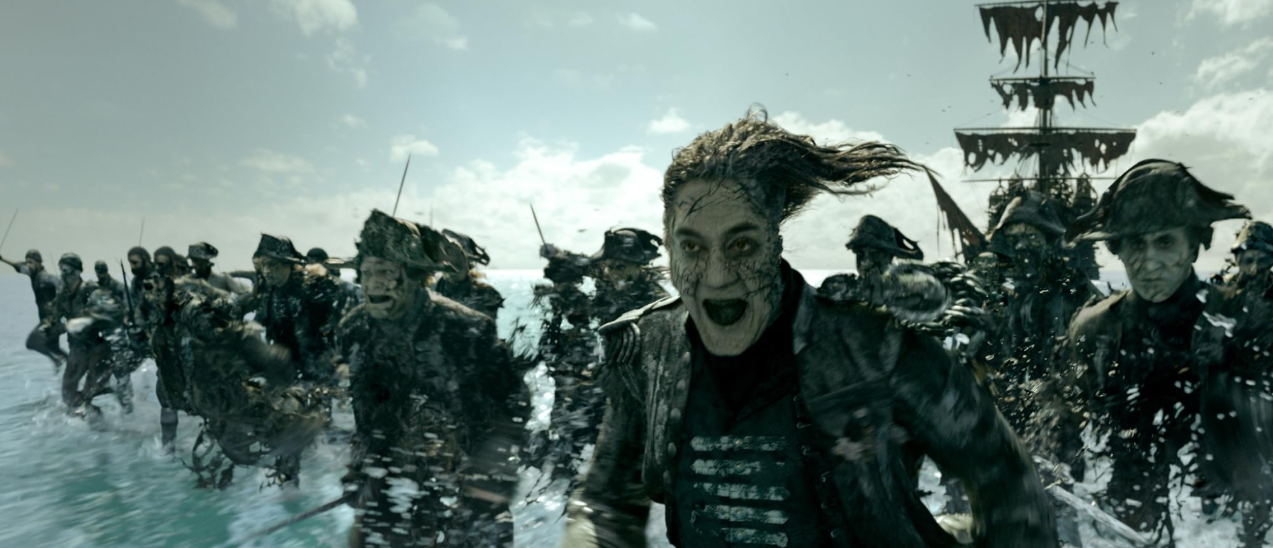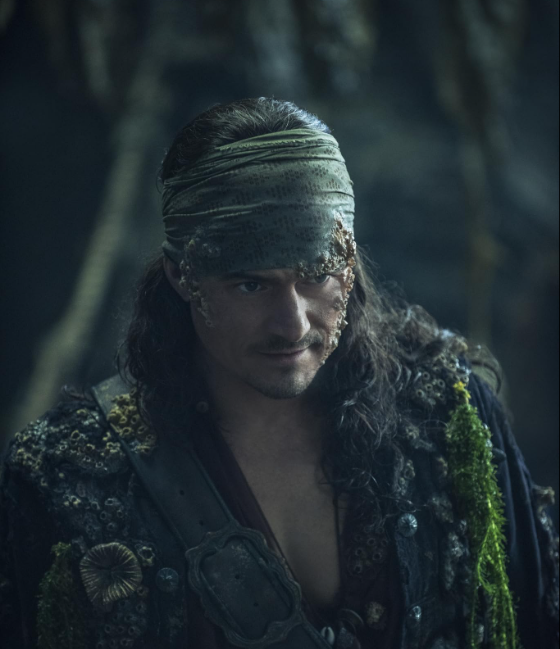Pirates of the Caribbean: Dead Men Tell No Tales - A Weak Fifth Installment
A lackluster fifth installment of “Pirates,” worth watching only for Johnny Depp and a few comedic and action-packed scenes.
Henry Turner (Brenton Thwaites), the grown-up son of Will and Elizabeth, learns that he can free his father from a sea curse by obtaining the Trident of Poseidon – one of the most powerful ocean artifacts. Since the young man doesn’t have his own ship, he seeks out the pirate captain Jack Sparrow (Johnny Depp) in the hope that he will help the son of old acquaintances. Along the way, the young man meets his peer Carina (Kaya Scodelario) – a female astronomer who is also looking for the trident. Carina hopes that the search will shed light on the fate of her father, who left her an encrypted diary with a star map pointing to the island of the Trident. Meanwhile, Jack learns that he is being hunted by his old enemy – the Spanish pirate hunter Salazar (Javier Bardem), whom Jack once turned into a sea undead.

The film is released six years after the fourth episode, “Pirates of the Caribbean: On Stranger Tides,” because after the failure of “The Lone Ranger,” Walt Disney Studios doubted Johnny Depp’s commercial viability and stopped automatically approving his films.
When the creators of the fifth installment of the popular pirate cycle talk about their film, they sometimes speak of it as a new beginning with young protagonists and as an attempt to re-enter the artistic waters that washed up the success of the first episode of the “Caribbean” saga.

The Norwegian directors of the film, Joachim Rønning and Espen Sandberg, became famous in Hollywood when their biopic “Kon-Tiki” was nominated for an Oscar in 2013 in the category of “best foreign language film.”
A Finale More Than a New Beginning
In reality, the opposite is true. “Dead Men” does not start the cycle anew, but draws a line under the plot of the first three “Caribbean” films. Although Orlando Bloom and Keira Knightley appear in only a couple of scenes, they are invisibly present in every frame, because it is for them that Henry goes on an adventure, and it is their reunion that becomes the “tipping point” of the epilogue. Carina also acts not entirely in her own interests (her father is one of the characters already familiar to the audience of the cycle), and Jack confronts the villain thanks to whom he became the captain nicknamed Sparrow. Remember how in the third series of “Indiana Jones” the cycle ended, returning the hero to the origins – to the acquisition of a whip, a hat, and an interest in archeology? Something similar happens in “Dead Men.” We learn where Jack came from, and this is a logical finale to the epic.

The Newcomers Fail to Impress
The film would not seem like a two-hour epilogue to more successful canvases if Thwaites and Scodelario were as charismatic as Bloom and Knightley in the first film of the cycle. But the new duo drowns in the shadow of the former stars, even when they are not on the screen. There is not a drop of Bloom’s masculinity in the bland “sweet boy” Thwaites, and his character does not compensate for this with feats, and the sparkle in Scodelario’s eyes is barely noticeable compared to the flame in Knightley’s eyes. The new heroine is more of a living compass than an interesting character, and the film devotes surprisingly little time to Carina’s family affairs. The romantic line between Henry and Carina is a fiasco of the 80th level. No love “spark,” no convincing feelings. The film would have benefited if the guys were made brother and sister.

This would not be a big problem if the young actors were the background for the real stars – Depp, Bardem, Geoffrey Rush, and others. But Henry and Carina are at the center of the narrative, and the double casting failure does not fill the film with fresh energy, but sucks energy from the veterans. Which, by the way, is not so much. Much less than it should have been.
Familiar Faces, Tired Jokes
Yes, Captain Sparrow is still the funniest pirate in both hemispheres, but his comedic material is old and trite. Yes, Captain Barbossa is a successful antihero, but he was more colorful in the first film of the cycle. Salazar is a pale and flat imitation of the undead villains from previous series. There is no intrigue and no psychological complexity in him. This is a banal and not particularly smart bloodthirsty maniac, who is by no means as frightening as Bardem’s villain from “No Country for Old Men.” In addition, he does not feel the captain’s leadership that such a character should have. This is a villain with an entourage, not a true sea leader, like Barbossa and Jones.
Action That Lacks Imagination
Can we at least count on drive and ingenuity in the action scenes? There is plenty of drive in the film, and this is pleasing in comparison with the recent “Guardians of the Galaxy. Part 2,” which stalled in the middle of the film. The heroes of “Dead Men” almost non-stop run, swim, or fight. However, this happens without much staging fantasy. Even in the finale, when the characters get to the Trident of Poseidon and touch its colossal power, nothing truly amazing and unprecedented happens on the screen. The best action fragments of the film are the opening scenes, creatively “stolen” from one of the “Fast and Furious” films. Another good one is the failed execution, also from the first third of the film. And then – a pile of second-rate disappointments. Although overflowing with special effects.
Final Verdict
In general, if you love Captain Sparrow and want to meet him again and at the same time find out how the story of the Turners ended, then you can devote two hours of your life to the fifth “Pirates.” There are busy and funny moments in them. But this is not a movie that inspires new faith in the series, but a film that convinces that it is time for the “Pirates” to rest, until they turn into a complete disgrace – into a collection of “minuses” without a shadow of “pluses.”